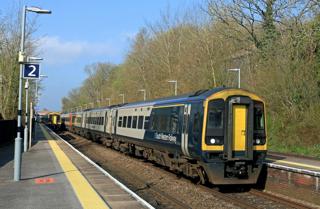
Managers at CrossCountry say they have achieved the aims of its three-month reduced timetable.

Managers at CrossCountry say they have achieved the aims of its three-month reduced timetable.
Services were cut on certain routes between August 10 and November 9 2024, to help the operator tackle a backlog of driver training that had affected reliability.
The move had been signed off by then-Transport Secretary Louise Haigh, although she added a footnote that CrossCountry’s performance was not acceptable and that the reduced timetable was not a satisfactory response.
Haigh also said the operator must agree a Remedial Plan to improve services. Speaking in mid-December, senior managers at CrossCountry were optimistic that they were achieving the aims of both the timetable and the remedial plan.
“We have delivered everything we said we would,” said XC Stakeholder Manager Richard Gibson. “We have exceeded driver training hours. We definitely did what we set out to do.”
CrossCountry had been targeted with reducing the number of legacy driver training days by 1,495 during the temporary timetable period, but exceeded that by bringing the backlog down by 1,831 days. The operator was also tasked with increasing the number of trainee drivers and
driver team manager resilience at core depots, as well as reducing sickness rates.
The December timetable change also allowed XC to improve driver resilience at Edinburgh and Cardiff on Sundays, to reduce learning rate requirements between Birmingham and Bournemouth by 25 days per driver, and to reduce overall training requirement for drivers at Cambridge.
Bethan Jelfs, Regional Director for West & Wales at CrossCountry, said the driver training backlog was “greatly reduced”, but admitted that the operator still had “some resourcing challenges”, particularly over the festive period.
XC achieved a punctuality rate of 46.4% between July and September 2024, down from the 47.2% between April 2023 and March 2024, and down 2.3% from the corresponding period in 2023.
However, the number of trains cancellations was down 1.7% year-on-year to 5.8%.
The operator said that during the 92-day temporary timetable, the average number of daily cancellations was 7.5, with none on 13 days and five on 36 days.
In the four weeks ending Saturday October 12, 107 services were short-formed - the equivalent of 1.8% of its planned services, and 40% fewer than the previous four-week period.
The operator also said punctuality targets were achieved in the four weeks ending January 4, during which period the percentage of all cancellations was at 12.3%.
The latter represented a 4% improvement on the previous year, although it was still 4.4% higher than the target. Year-on-year arrivals within three and 15 minutes of scheduled times also improved.
The Department for Transport acknowledged that reliability improved during the reduced timetable, but it will continue to monitor CrossCountry’s performance against the remedial plan, which runs until March.
A DfT spokeswoman said: “CrossCountry’s recent cancellations are unacceptable and fall short of what passengers deserve. That’s why we placed them on a remedial plan in August and continue to hold them to account.
“We have urged them to make staffing and fleet arrangements more sustainable, and have approved CrossCountry’s plans to reduce overcrowding by opening up the First Class area on regional services to all passengers.”
CrossCountry has also removed First Class from its Turbostar routes. Each Class 170 will have its First Class areas removed during refurbishment.
Login to continue reading
Or register with RAIL to keep up-to-date with the latest news, insight and opinion.


















Derek Amitri - 24/01/2025 08:24
Why remove FC from the Turbostars when the Voyager services are much more overcrowded? I'd have thought Voyagers were a priority for declassifying.